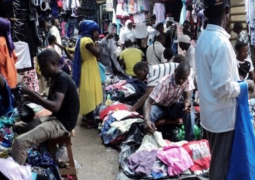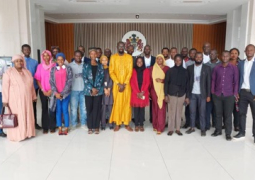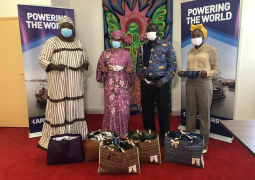
Lamin M. Camara revealed that as more countries are experiencing water and sanitation stress, potable and affordable drinking water and better sanitation systems require investment in infrastructure to provide water and sanitation facilities to vulnerable people and communities.
He was speaking at the end of a massive environmental monitoring of the Gambia Climate Smart Rural Water and Sanitation (CSRWASH) Project that targets about 144 communities within five administrative regions of West Coast, Lower River, North Bank, Central River and Upper River regions.
The exercise is in reference to the approved Environment & Social Management Plan (ESMP) document prepared to guide the constructions and operational phases of the (CSRWASH) project in relation to environmental and social ramifications in order to verify the implementation mitigation commitments and recommendations to the contractors and their teams.
According to him, it is a requirement for an environmental monitoring and supervisions to be conducted within the project sites, much so with the fact that contractors have started the drilling operations of the boreholes and construction of sanitary facilities at some of the project intervention sites.
The exercise, he pointed out availed officers to collect meaningful and relevant information and recommendations to improve mitigation measures to be undertaken during implementation of the project.
Speaking to this medium just after the completion of the exercise, Camara disclosed that the exercise among other things ensures that mitigation measures against the possible degradation of the areas as stated in the ESMP document are fully implemented during the project implementation cycle.
“…and to ensure that the project is developed and operates in accordance with relevant environmental legislations of The Gambia including the National Environment Management Act, (NEMA)1994.”
He explained that the selection of project intervention sites or localities was based on key factors which include but not limited to the following: the current poverty level, population size, water point coverage, child mortality and incidence of water borne diseases associated with the locality identified.
“The project mainly focused on two core components which are the rehabilitation of existing water facilities/infrastructure, and the construction of new water supply and sanitation infrastructures. The specific activities include the drilling of boreholes and building of water distribution facilities, water troughs for livestock and solid and liquid waste management infrastructure.”
Also monitored are the effects of vibration, dust and noise as major potential impacts that could emanate during dredging for pipe laying especially to those residents within the project influence zone. Emergency of STIs, injuries and related occupational health issues over short term were also discovered to be a major issue during project work. The activities of the project in clustered communities will have significant destruction of fauna and flora in intervention areas. The overall negative environmental and social impacts that are anticipated during project implementation could be minimised and managed if the mitigation measures proposed are duly implemented and adhered to during operation.
The project is trying to fulfill the regulatory requirement as far as quarterly monitoring basis is concerned. The working group comprises different stakeholders that go to the project site to inspect and scrutinise contractors’ commitments with regards to the implementation of the ESMP and mitigation commitments, and some of the damaging effects on the environment and social issues.
“As a corrective measure, we recommend were problems are seen and give them the correct way forward.” He said the contractors are up to fulfill all the requirement of the ESMP.
He concluded that sanitation systems aim to protect human health by providing a clean environment that will stop the transmission of disease, especially through the fecal–oral route.





